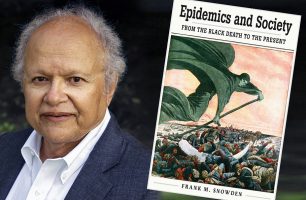
Covid-19 as the first pandemic of globalisation
Mark Leonard talks to Frank Snowden,
Professor Emeritus of History and History of Medicine at Yale University,
about how infectious diseases have shaped societies,
inspired political reform,
altered the outcome of wars,
transformed religion,
and entrenched racial and economic discrimination.
What lessons can we draw from post pandemic’s to prepare our politics, economies and societies for the future?



